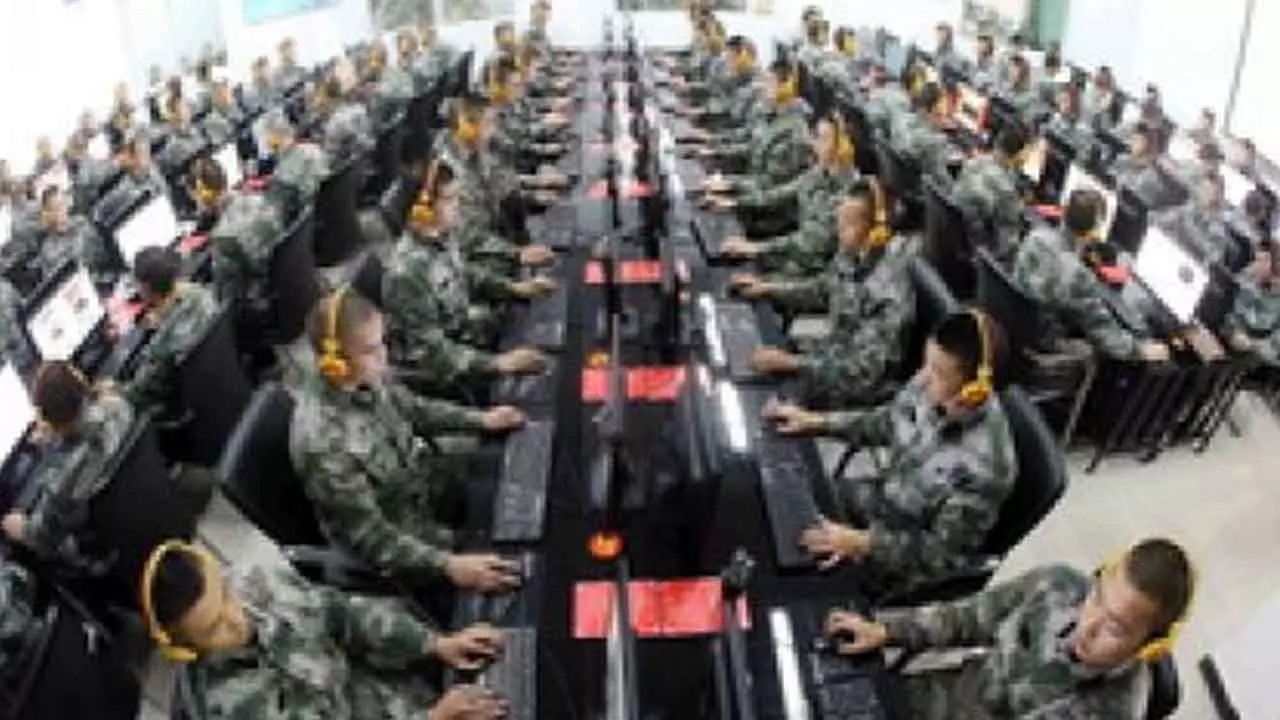Why no one trusts Chinese?
Share :

Recently, Microsoft has reportedly banned its employees in China from using Android devices for work, requiring them to switch to Apple devices in September.
The move aims to mitigate cyberattacks and prevent data leaks of corporate resources. The unavailability of Google Play in China, leading to reliance on operating platforms from Chinese companies like Huawei and Xiaomi, is a key factor.
This decision follows Microsoft's earlier offer to around 800 local employees in China, working in artificial intelligence and cloud business, to relocate to other countries. This relocation is in line with the US administration's efforts to restrict Beijing’s access to advanced sensitive technologies due to cybersecurity concerns.
While Microsoft describes this as a “regular part of its global operations,” their February report highlights state-sponsored cyberattack concerns, including hackers from China using Microsoft’s AI tools for intelligence gathering and influencing narratives.
The precautionary measures taken by Microsoft are underscored by criticism from the U.S. Department of Homeland Security’s Cyber Safety Review Board, which cited “a cascade of errors” in Microsoft's failure to prevent security breaches by the Chinese state-backed hacking group Storm-0558. This group targeted email accounts of approximately 22 organisations, including US government officials, and accessed about 60,000 emails from the US State Department.
Cyber espionage is undeniably the most significant national security threat facing the international community today. Recently, China's involvement in cyber espionage has been exposed, despite its covert activities since 2019.
In March, the US and the UK filed charges against Beijing and imposed sanctions, accusing it of using both artificial intelligence and Chinese nationals for malicious cyber hacking operations. These activities compromised the private data of millions worldwide, including businesspeople, lawyers, journalists, academics, politicians, bureaucrats, and critics of the Chinese government.
Similarly, New Zealand and Dutch intelligence agencies have accused China of state-backed espionage campaigns targeting the Wellington Parliament and Dutch military industries.
Beijing’s cyber hacking activities have also extended to neighbouring countries in Asia. This was evidenced in the February document leak from i-Soon, a Shanghai-based cybersecurity company, which revealed the Chinese government’s collaboration with i-Soon’s private hackers for intelligence gathering from foreign governments and organisations.
China's state-supported intelligence operations targeting other nations through cyber espionage are primarily aimed at intellectual property theft (IPT), particularly from Western countries. Due to the lesser emphasis on innovation, Chinese firms, especially those with political connections, have little incentive to pursue innovative paths. This policy effectively promotes IPT theft.
To surpass Western companies in global market competition, Chinese policies permit the acquisition of foreign technology know-how through both legitimate and illegitimate means, with the latter involving cyber espionage.
In 2022, Chinese-affiliated Advanced Persistent Threat (APT) 41 was suspected of conducting cyber operations that resulted in millions of dollars worth of IPT theft from approximately 30 multinational companies across the energy, manufacturing, and pharmaceutical sectors.
Additionally, intelligence gathering has heavily targeted security sectors that possess knowledge of modern warfare's technical capabilities. Emerging Chinese-affiliated APT groups, such as APT 40, have expanded their efforts to gather information for intellectual theft from both government institutions and private companies.
Telecommunication companies like Huawei and ZTE have been controversial due to Beijing's potential use of 5G infrastructure for cyber espionage and IPR theft, posing a significant national security threat.
In October last year, the Five Eyes; intelligence chiefs from the US, UK, Canada, Australia, and New Zealand accused Beijing of intellectual property theft through artificial intelligence in its hacking operations, which was seen as an "unprecedented threat" posed by China globally.
China's espionage activities extend beyond digital platforms to physical infiltration in target nations. Utilising its diasporic population as part of human intelligence exemplifies this approach.
A 2022 report revealed Beijing's long-term strategy of recruiting prominent scientists of Chinese descent who formerly worked at the US Department of Energy's Los Alamos National Laboratory in New Mexico.
At least 162 such scientists with prior experience at this lab have reportedly been recruited to serve the Chinese government. This represents a broader, time-intensive, unconventional tactic of intelligence gathering, where Chinese researchers and academics are incentivised to advance their expertise abroad and subsequently share their knowledge with Beijing.
Notably, China's Counter-Terrorism Law (2015) and National Intelligence Law (2017) mandate Chinese nationals, institutions, and organisations to support and promote state intelligence activities by acting as informants.
Additionally, the United Front's political role in managing the diaspora abroad aims to extend Beijing's global influence and maintain a favourable narrative about China, highlighting another facet of its influence operations.
China's venture capital (VC) investments in foreign nations have also come under scrutiny for their alleged involvement in human rights abuses and surveillance activities. The policies requiring organisational compliance and intelligence cooperation with the government extend to Chinese entities operating overseas as well.
Earlier this year, a US congressional panel accused five American VC firms of investing over $3 billion in Chinese companies with suspected links to the Chinese government and military. The collaboration between Chinese companies and state-owned enterprises, particularly those engaged in developing advanced and critical technologies, thus serves as a cautionary example.
China's involvement in global cyber espionage, influence operations, and intellectual property theft has faced widespread criticism, particularly from Western nations. This negative perception recently escalated with accusations against China for foreign interference aimed at election meddling.
These hostile tactics have had significant repercussions for China, leading to bans on TikTok and 5G telecommunications networks in multiple countries over national security concerns.
Even among its allies, reports of poor performance and a lack of transparency and accountability in China's defence equipment have contributed to a decline in its global arms exports in recent years.
The global view of China is further illustrated by the 2023 Pew Research survey conducted across 24 countries, where 67 per cent expressed a negative opinion of China, and 57 per cent regarded its foreign policy as interventionist. Thus, it can be concluded that trust in China is significantly lacking.







